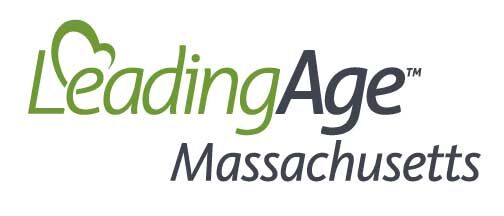Webinar Series
Essentials of the LTC Director of Nursing Role Part 3
June 28, 2023 2 – 5:15 p.m.
June 29, 2023 2 – 5:15 p.m.
Registration Deadline: June 25, 2023
In collaboration with LeadingAge Iowa, LeadingAge Massachusetts is pleased to announce a virtual series that will aid in developing the Director of Nursing (DON) role in nursing homes. Elements of this series will focus on budgeting and quality assurance; survey processes and regulations; and human resources, customer service, and leadership.
Each segment of this series is designed to provide in-depth information and discussion on each topic. By making each of the segments standalone, you can better address succession planning by having individuals attend as their nurse leadership skills are identified.
Who Should Attend
LTC Administrators, Director of Nursing, Assistant Director of Nursing, and other nurse leaders. Appropriate for SNF providers.
Cost
LeadingAge MA Member Staff or Board Member -- $125 per individual
Nonmember -- $300 per individual
CEUs
7 Nursing CEUs will be offered for this program.
What’s Included
Registration fee includes digital handout, one connection to the virtual, live-streaming event, and instructions for receiving CE credit/attendance certificate for one person. This event will NOT be recorded; therefore, a recording of this event is NOT included in the registration fee.
Handouts
All handouts will be available digitally.
Split/Share Policy
Splitting or sharing a registration is not permitted. Registrations are to be used by the same person for the entire program even if the person is able to attend only part of the program or conference.
Event Agenda
June 28, 2023
1 – 2:15 p.m. CT
Human Resources
Depending on the organizational structure of the nursing home, the Director of Nursing will serve in a human resource capacity related to interviewing, hiring, disciplining, and potentially terminating nursing staff. It is essential for the Director of Nursing to have a basic knowledge of best practices for human resources.
- Incorporate strategies for pre-employment screening and interviewing processes for nursing department personnel.
- Discuss the requirements for criminal background checks, adult abuse registry checks, license/certification verification, and occupational health.
- Identify best practices to prevent employee concerns regarding the ADA and Civil Rights laws.
Faculty:
Krissy Gilbreth, Human Resources Director, Oaknoll Retirement Residence, Iowa City
2:30 – 4:15 p.m. CT
Developing an Effective Infection Prevention & Control Program
Infection prevention and control has never been more critical to providing a safe environment for the residents served. This session will include the required components of the infection prevention and control program according to the federal requirements of participation including elements on the CMS Critical Element Pathway, antibiotic stewardship, and infection surveillance in nursing homes.
- Recognize components of a compliant infection prevention and control program.
- Identify best practices related to antibiotic stewardship.
- Utilize the CMS Critical Element Pathway as a quality assurance monitoring tool.
Faculty:
Deb Martin, RN, BSN, IP, Account Executive, CE Solutions/VGM Education, Waterloo
Susan Ayers, RN, BSN, LNHA, IP, Administrator, Chautauqua Guest Homes, Charles City
June 29, 2023
1 – 4:15 p.m. CT (a 15-minute break will be scheduled during this session)
Regulations Relevant to the Nursing Department Part 2
This session will include strategies for maintaining compliance regarding federal regulations with focuses in the nursing department. The following sections from Appendix PP of the State Operations Manual (SOM) will be covered in-depth including regulatory language, developing strategies for strong prevention programs in accordance with interpretative guidance, and examples of non-compliance.
- Quality of Care
- Physician’s Services
- Nursing Services
- Behavioral Health
In addition, Quality Assurance and Performance Improvement examples will be provided during discussion on each regulation.
- Review the regulations pertaining to the nursing department and resident care.
- Establish effective compliant programs to prevent resident harm and non-compliance.
- Discuss examples of non-compliance based on previous deficient practices as cited in Iowa.
- Develop quality assurance monitors to assure ongoing regulatory compliance.
Faculty:
Kellie Van Ree, RN, LNHA, IP, Director of Clinical Services, LeadingAge Iowa, Urbandale

 Prev Month
Prev Month View Month
View Month Search
Search Go to Month
Go to Month Next Month
Next Month Export Event
Export Event 